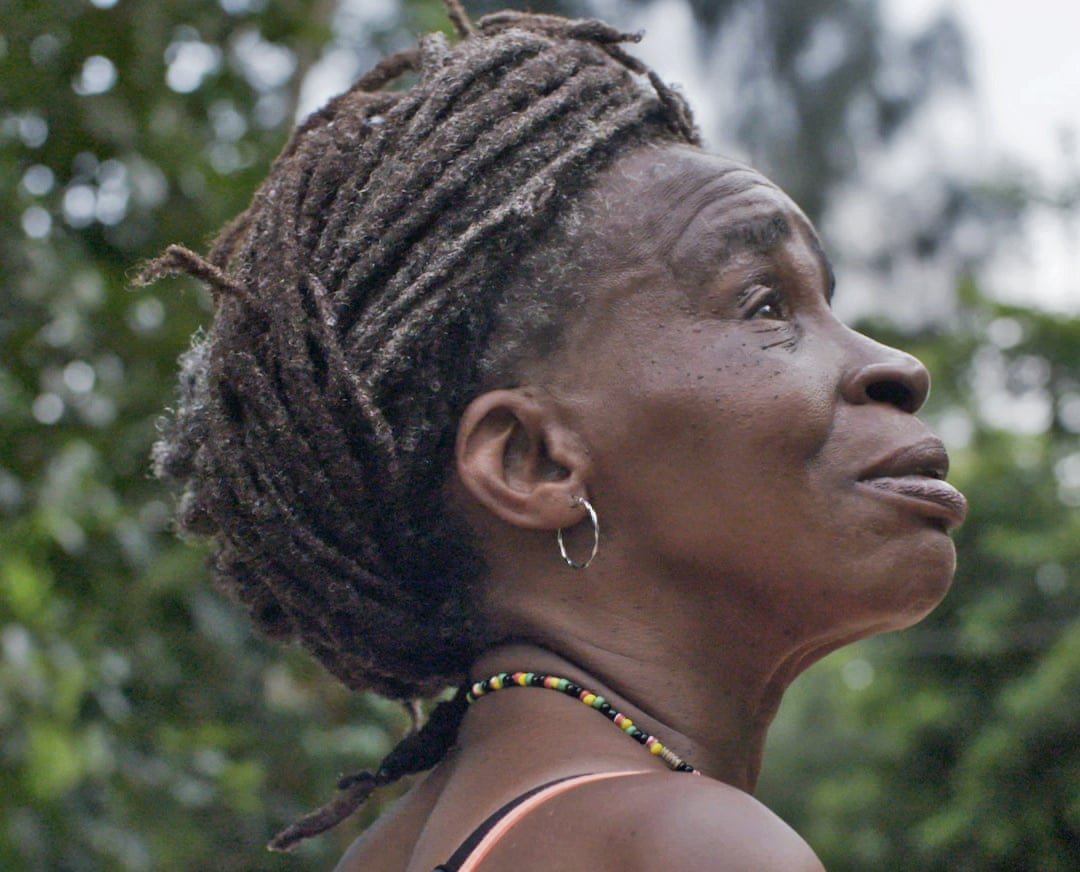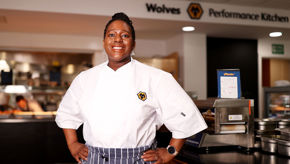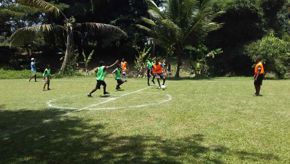The first Black History Month feature on wolves.co.uk this October sees Kiya Wright of the club’s conference and banqueting team share her story.
Kiya’s role at Wolves sees her coordinate events at Molineux, including conferences, meetings, wedding and parties, and she is a valued member of the club’s staff and equality and diversity panel.
Her inspirational figure comes from close to home, in the form of her auntie Paulette Wilson, who fought off a wrongful deportation of her own in 2017, then set about assisting the battles of those in a similar situation.
Paulette made the fight for others of the Windrush scandal her life mission and took signatures to Downing Street to support people from the Windrush generation that had been wrongly detained, providing a massive amount inspiration to Kiya, both in her personal and work life.
On her inspirational person
“My auntie Paulette Wilson, who sadly passed away a couple of months ago at the age of only 64, was part of the Windrush generation and is my inspiration within black history. My grandma, who is Paulette’s auntie, came over to the UK legally when she was 16. My grandma was told by her mum to take Paulette with her – she was ten at the time.
“They came over together and my grandma set up life here in the UK, bringing Paulette up as a daughter. She then had five other children, one being my dad. Paulette’s always been a big part of our family. She had lived here since she was ten and not returned to Jamaica since, but the UK government tried to deport her back to Jamaica in 2017. Paulette’s story has been one of many within the Windrush scandal but was also seen to be one of the first and had encouraged other people to come forward about the way they have been wrongfully treated.
“She’d lived and worked here all her life – even working as a chef at one point in the House of Commons. Her case went back and forth for a long time, with her being sent to the deportation centre, not once but twice. After a long-standing battle, her UK residence was confirmed. Although Paulette’s case was resolved, she continued to fight for the justice of other people from the Windrush generation who had also been wrongfully detained as to what we now know to be the Windrush scandal. She’s worked with people at Wolverhampton Council and taken petitions to Downing Street, even up until a month before she passed away in July.”

On how Paulette’s actions inspired her
“Once her situation was resolved, and it was so stressful for all of us and her, she has a daughter and granddaughter, so you can imagine the stress of the government trying to deport her, it then became her life mission to help others who had also been victims of the Windrush scandal.
“She could have given up, but she spent her time collecting petitions and signatures, and pushing the movement. She’s been the pioneer for a generation of people who’ve had the same issue. They call Paulette the Windrush grandmother. She even launched ‘The Paulette Wilson Windrush Citizenship Project’ alongside Wolverhampton Council’.
“Anyone who knew Paulette will tell you how much of a beautiful person she was, inside and out –she was the life of the party, always dancing, always helping others. She was kind to every person she met and always brought a smile to your face. It’s horrible to think that the government broke her down the way they did.”
On taking that inspiration to Wolves
“It relates back to our one pack mentality at Wolves. Her case was somewhat resolved, but she was thinking about everyone else in a similar situation. She could have just got on with her life, she didn’t have to fight anymore, because she got her residency as she rightfully deserved, but she kept going.
“It was very hard on her being sent to be deported, and when she came back she wasn’t the same person, because that kind of thing does break you, knowing you’d lived somewhere your whole life and someone tries to tell you you can’t anymore and you have to be sent back to a country of which you don’t really know.
“She could have easily put it to one side and got on with her life, but she fought for other people. People don’t know this is happening, so don’t know where to begin in their battle, so she helped them to do that. We need to work together to be the change we want to see in the world.”
On the Black Lives Matter movement
“It’s very important. Black Lives Matter has been going on for a while now, but I think it touched more people during lockdown as they didn’t have as many outside distractions as they would have had previously. People had more time to spend on social media and were made to become aware of what was going on in the world. It was almost like they couldn’t escape it. People were probably reading the news a lot more anyway due to coronavirus and then the death of George Floyd happened.
“My mum had people coming up to her at work saying they didn’t realise it was like that in the US, and she reminded them it’s very much like that in the UK too. This year, with the nation being at home, it’s had more of an impact than it did in previous years.”
On personal inclusion issues she’s faced
“I’ve been reading a lot of stories, and it’s been quite intense, and I was learning about things I didn’t realise were racist. When I was younger, being mixed race, I had people asking which parent was black or asking to touch my hair. They’re things that I’ve just grown up with, and thinking it was normal, but now I am looking back and realising it was racist.”
On how she now deals with issues
“I don’t like confrontation, I can talk a lot if I know you, but I’m quite a quiet person in a professional environment. Previously, I’d probably shut my mouth most of the time, even if I heard something, or I’d second guess myself about if they meant it in that way.
“Now, I’d probably be more inclined to say something and speak up for myself and my race, because it’s not just about not being racist, it’s about being anti-racist – you need to call it out.”
On positive experiences of improvements in society
“With this movement, I’ve seen people call racism out more. It seems like people aren’t letting comments slide that they might have previously, so I do think it’s been positive. Obviously, some people are against it, but I do believe there’s more unity because there is a better understanding than there has been in the past.”
The first Black History Month feature on wolves.co.uk this October sees Kiya Wright of the club’s conference and banqueting team share her story.
On Black History Month being a tool
“It’s another way to educate people. In school people would say, ‘We don’t see colour’, and that’s what I was taught at school – we have an ignorance to it, but really we should be talking about it. It’s been the elephant in the room. We should be celebrating diversity and learning from each other.”
On improvements still needed in society
“Just be open to listen and learn.
“Systematic racism needs to change, and the way the police force act and are trained, but if everyone knows more about black history, and how it is also in fact British history, then we would see a lot less ignorance.”
Visit wolves.co.uk next Friday for our second Black History Month in focus with Wolves under-23 defender Michael Agboola.

















